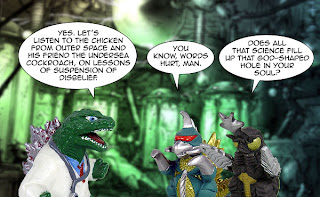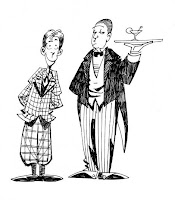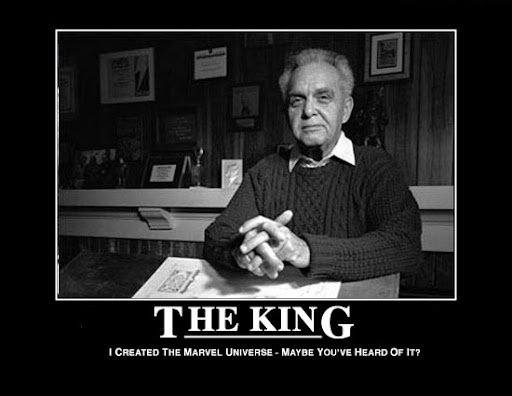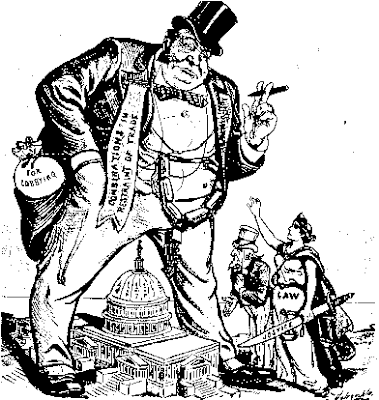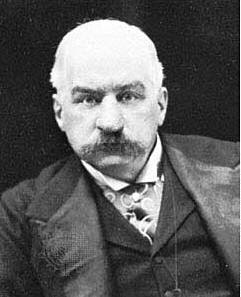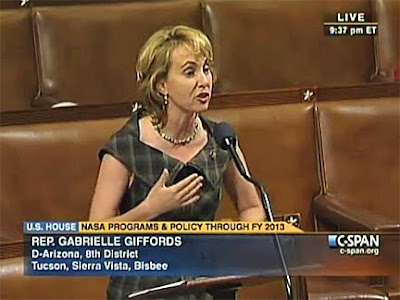
"Saints are ready to receive all sinners: all sinners are not ready to receive saints."
--
Christina Rossetti, “The Face of the Deep”
***
“...This gig requires a highly developed sense of irony. Say you're doing a story (as Gladstone did last fall) about the fact that the press will come down harder on a politician who lies about himself than on a candidate who lies about his opponent, and that it's much easier to get away with misrepresenting policy than with fibbing about personal matters. As a result, slandering your opponent's position on healthcare reform causes less of a fuss than claiming you dodged sniper fire on a diplomatic mission to Bosnia when you didn't.
Interviewing the analyst who made these observations (Paul Waldman of
The American Prospect), Gladstone summarized one of his explanations thus: "The media have less expertise to evaluate a policy charge, and anyone is an expert when it comes to personal matters." When Waldman argued that reporters should instead pay closer attention to the veracity of claims that directly pertain to what the candidate might do in office, Gladstone remarked, "You're asking them to focus on the relevant" -- in a tone that was tantamount to a raised eyebrow. Then both of them laughed, because there are times when you have to laugh to keep from weeping or screaming.”
--
Laura Miller, in a review of
The Influencing Machineby Josh Neufeld,Brooke Gladstone
***
“More fundamentally, we have to thank Raymond Chandler and Dashiell Hammett, who provided the mean-street-walking existential characters we willingly confused with the actors who played them. The new retro cool I wallowed in had Philip Marlowe and Sam Spade as its source: the hard men with soft, democratic centres, American Romantics tinged with the Founding Fathers and Melville’s melancholic sense of humanity, the people’s Lancelots, who were dragged, flinching with distaste, into the dirty underworld by good and bad men and women, and by their doomed vocation to set the world to rights. Private eyes, but really public defenders. Always disappointed but always trying, never letting love get in the way of justice or their own essential solitude, but expressing enough righteous anger and controlled violence to keep them more interesting than, say, Jesus at his gentlest and most mild. They were dream soldiers of fortune who never came into their fortune because they couldn’t help but look after the weak....
After the war, in books but most of all in old movies, these reluctant action heroes became perfect modern exemplars for the likes of Camus, who saw in them a stoic refusal to be held back by the status quo. Men who behaved as if there was a point in trying to right wrongs, even if they knew the world better than that... And maybe, later on, it was Marlowe and Spade who gave us the courage and foolheadedness to take to the streets. We were young and had energy to expend, so movies and books weren’t quite enough. We couldn’t all be private eyes. And the lurking socialism in Chandler and Hammett fitted well with a postwar generation’s fidgety need to blow holes in the self-sustaining establishment. I think they were part of the equation for the brief explosion of political and social activity.”
-- Jenny Diski,
“A bout de Bogart”, in
The London Review of Books***
“Galbraith delighted in puncturing the self-importance of his profession. He was a satirist of economics almost as much as a practitioner of it... Other economists believed that consumers were rational, calculating actors, whose demands and tastes were deserving of the utmost deference. Galbraith saw people who were easily manipulated by savvy corporations and slick advertising campaigns, who had no real idea of what they wanted, or why.”
-- Kim Phillips-Fein on
John Kenneth Galbraith in
The Nation***
"States and municipalities, for instance, have toughened criminal penalties and immigration laws at the behest of the private prison industry; empowered Wall Street banks to not only collect taxes but levy additional tax penalties; and allowed energy companies to exploit so-called forced pooling statutes, thereby creating what one Republican governor calls a new power of "private eminent domain." One state is now even considering making it a criminal act to share your Netflix password with friends and family, because that is cutting into Netflix revenues.
In Washington, D.C., the federal government just enacted a healthcare bill whose individual mandate forces citizens to purchase private insurance, and the Pentagon has developed a reliable pattern of using military power to occupy resource-rich countries -- and then to privatize those resources at the barrel of a gun.
This same government, which has granted corporations the rights of "personhood," has also used its power to let corporations avoid the responsibilities of personhood -- effectively using state power to create a new privileged status that is above the law. For instance, federal statutes have trampled the concept of "equal protection" by deliberately exempting corporate interests from the laws the rest of us live under -- laws like the Safe Drinking Water Act (which doesn't apply to natural gas drillers) and antitrust statutes (which still don't apply to private health insurers). Federal courts have used judicial power to limit corporations' legal and financial liability for fraud and lawbreaking."
-- David Sirota in
Salon***
That public men publish falsehoods
Is nothing new. That America must accept
Like the historical republics corruption and empire
Has been known for years.
Be angry at the sun for setting
If these things anger you. Watch the wheel slope and turn;
They are all bound on the wheel, these people, those warriors.
This republic, Europe, Asia.
Observe them gesticulating,
Observe them going down. The gang serves lies, the passionate
Man plays his part; the cold passion for truth
Hunts in no pack.
You are not Catullus, you know,
To lampoon these crude sketches of Caesar. You are far
From Dante's feet, but even farther from his dirty
Political hatreds.
Let boys want pleasure, and men
Struggle for power, and women perhaps for fame,
And the servile to serve a Leader and the dupes to be duped.
Yours is not theirs.(Robinson Jeffers)
***
“For revenge loudly disputes the virtue of ‘winning’. It is by definition a loser’s weapon. Not even the avenger ‘wins’. If his revenge is to be pure, he must gain nothing from it but the satisfaction of payback. He usually pays a heavy price to even the score; in revenge drama he almost always dies.
Revenge subverts the ethical basis of a competitive society. It is also a revolution in miniature; it assumes that the existing state of affairs is insupportable, and it actively seeks to transform it... In this exciting analysis of English revenge drama at its Elizabethan and Jacobean zenith, Linda Woodbridge argues that early modern audiences and playwrights enjoyed and celebrated revenge, associating it with the pursuit of social and economic fairness. Revenge, she notes, is an evening of scores, a leveling. ...
Of course, Christianity nominally reserves revenge for God, and much revenge drama is driven by the tension between Christian ethics and the vengeful impulse... The virtues of forgiveness are preached by the victorious to the defeated, while their own vengeful desires are legitimized as universal morality: “what they desire they call, not retaliation, but ‘the triumph of justice’”.
.... The predominant critical strain presupposes that revenge is reprehensible. The inference, as Woodbridge puts it, is that “anyone with ethics . . . will oppose revenge”. This book powerfully demonstrates that this is not so. Its literary analyses are based on the rational and well-documented contention that audiences and playwrights admired, valued and relished revenge.
They enjoyed it because revenge satisfied an increasingly widespread fantasy of social equality.”
-- David Hawkes,
The Times Literary Supplement

 (And some days it takes more Stones than others...) Where Mythical Bestiary meets Contemporary Culture and Chews On Its Leg Until Covered with Slobber.
(And some days it takes more Stones than others...) Where Mythical Bestiary meets Contemporary Culture and Chews On Its Leg Until Covered with Slobber.


